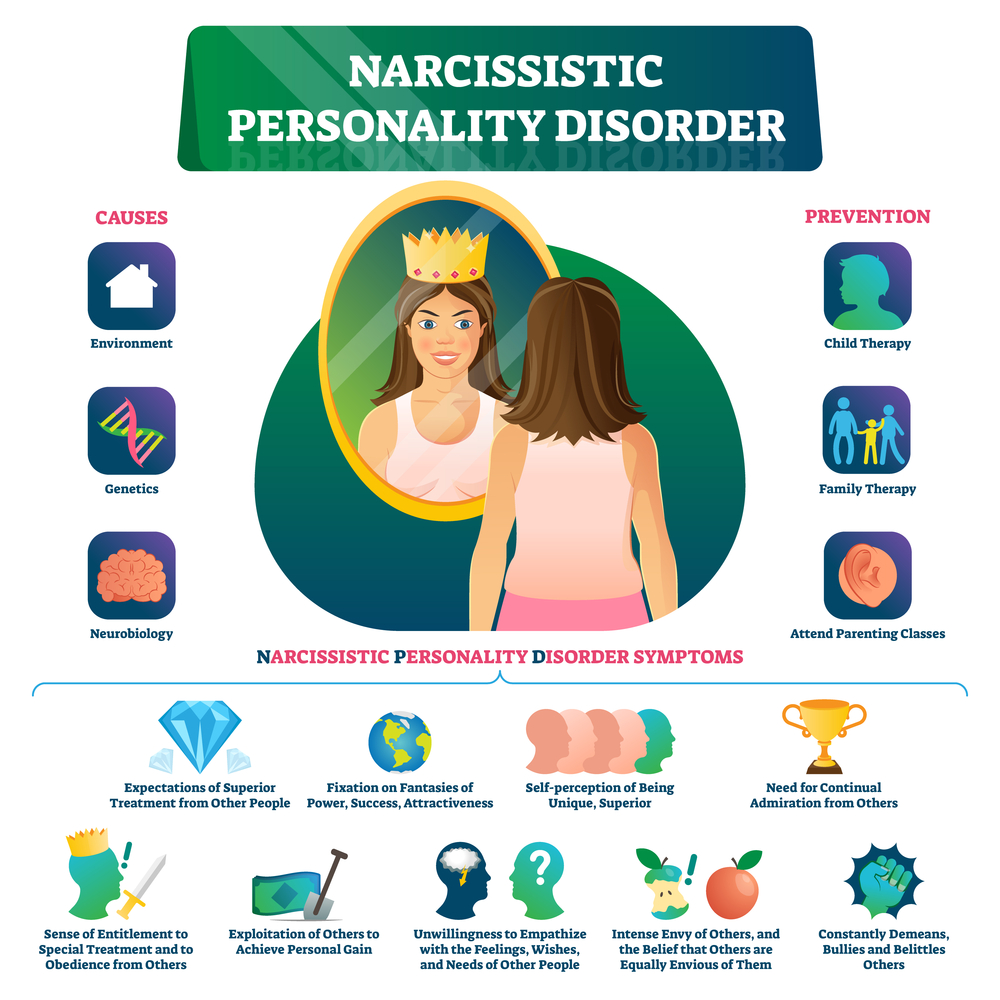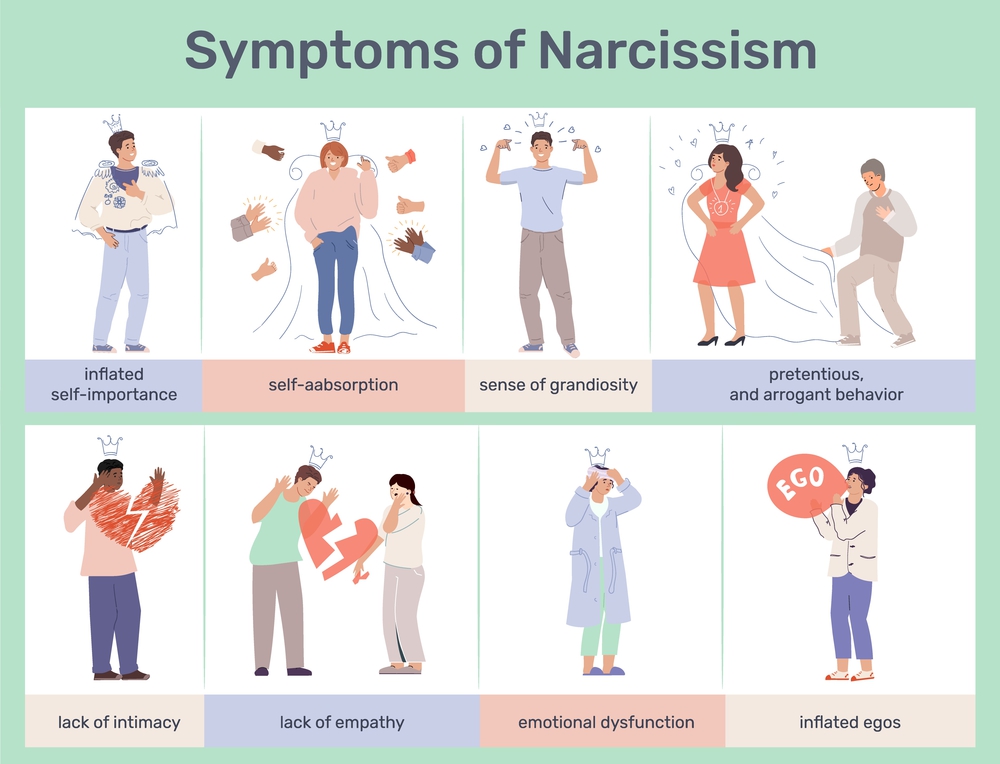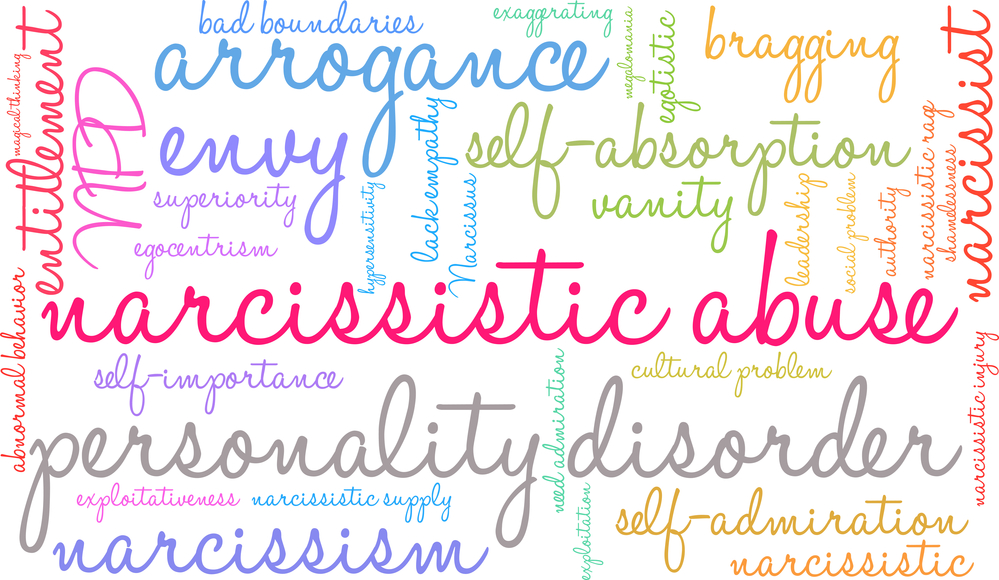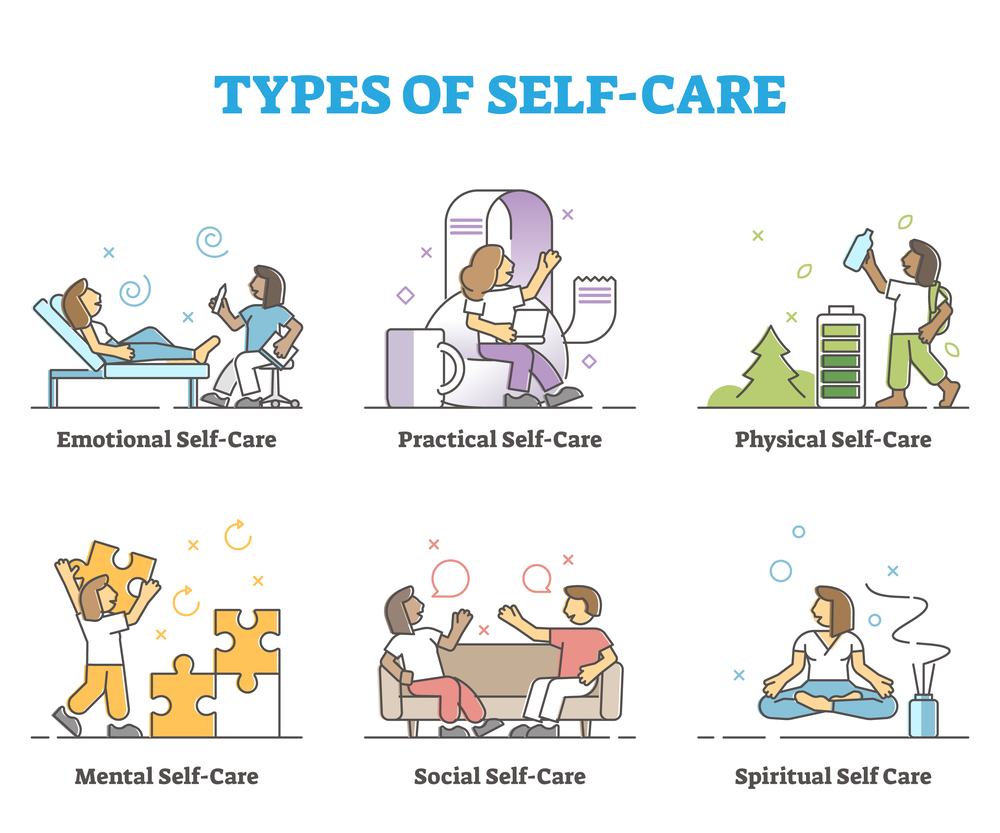Dealing With A Narcissist Boyfriend: Essential Tips To Handle The Situation
 Finding yourself in a relationship with a narcissistic boyfriend can leave you feeling unseen and unheard. You might notice that something is off but can't quite put your finger on it. The truth is that dealing with selfish behavior requires understanding and specific strategies to protect your well-being. A key fact to remember is that […]
Finding yourself in a relationship with a narcissistic boyfriend can leave you feeling unseen and unheard. You might notice that something is off but can't quite put your finger on it. The truth is that dealing with selfish behavior requires understanding and specific strategies to protect your well-being. A key fact to remember is that […]Finding yourself in a relationship with a narcissistic boyfriend can leave you feeling unseen and unheard. You might notice that something is off but can't quite put your finger on it.
The truth is that dealing with selfish behavior requires understanding and specific strategies to protect your well-being.
A key fact to remember is that narcissism exists on a spectrum. This means not all narcissistic behaviors are identical, making each situation unique. This article will guide you through recognizing these behaviors, setting boundaries effectively, and maintaining your emotional health.
Get ready for some crucial insights. Keep reading!
Recognizing Narcissistic Behavior

Narcissistic Personality Disorder (NPD) is a complex mental health condition characterized by a pervasive pattern of grandiosity, lack of empathy, and an excessive need for admiration. Recognizing the signs of this disorder is crucial for understanding and addressing the challenges it presents in personal and professional relationships.
One of the most prominent signs of NPD is an inflated sense of self-importance and entitlement. Individuals with this disorder often exaggerate their achievements and talents, expecting constant praise and admiration from others. They may also be preoccupied with fantasies of success, power, and beauty and a firm belief that they are superior and unique.
Another hallmark of NPD is a lack of empathy and disregard for the feelings and needs of others. Narcissists often exploit interpersonal relationships for their gain, displaying a sense of entitlement and an inability to recognize or validate the perspectives and experiences of those around them.
Narcissistic individuals frequently exhibit arrogant and haughty behaviors, reacting with anger, contempt, or belittling remarks when they perceive criticism or lack of admiration. They may also engage in attention-seeking behaviors, monopolizing conversations, and displaying an excessive need for approval and validation.
It is important to note that while these signs can be indicative of NPD, a qualified mental health professional should conduct a comprehensive assessment to make an accurate diagnosis. Recognizing narcissistic behavior is the first step in addressing the challenges it presents and seeking appropriate support and treatment.
Setting Boundaries with a Narcissist

When in a relationship with a narcissistic partner, setting clear and firm boundaries is crucial for maintaining one's self-respect and emotional well-being. Narcissists often exhibit a pattern of manipulation, exploitation, and lack of empathy, making it essential to establish limits and protect oneself from their toxic behavior.
One of the first steps in setting boundaries with a narcissist is to identify and communicate your needs and values clearly. Explain what behaviors you consider unacceptable and the consequences if those boundaries are violated. Be prepared for resistance or attempts to gaslight you, as narcissists often struggle to acknowledge the needs of others.
It's also important to consistently enforce the boundaries you've set. If your partner crosses a line, follow through with the stated consequence, whether it's leaving the situation, ending the conversation, or limiting contact for some time. Consistency reinforces the message that your boundaries are non-negotiable.
While setting boundaries, it's crucial to maintain a calm and assertive demeanor. Narcissists often thrive on emotional reactions, so responding with anger or defensiveness may only fuel their behavior. Stay grounded in your values and communicate your boundaries with confidence and clarity.
Additionally, seek support from trusted friends, family members, or a therapist. Dealing with a narcissistic partner can be emotionally draining and isolating. A strong support system can provide validation, perspective, and encouragement as you navigate this challenging situation and protect your well-being.
Coping Strategies for Dealing with a Narcissist

Developing coping strategies for dealing with a narcissistic boyfriend is essential to maintain your emotional health. One effective approach involves setting clear boundaries. Communicate these limits firmly and consistently without giving in to guilt or manipulation.
This act can take control away from the narcissist and give you space to breathe and make decisions based on your well-being.
Moreover, practicing self-reflection and mindfulness can empower you to remain calm and centered in the face of narcissistic behavior. By focusing on your thoughts and feelings without judgment, you can gain insights into your reactions and the dynamics of the relationship.
This understanding can lead to healthier coping mechanisms, such as recognizing triggers and implementing strategies to remain emotionally detached during conflicts.
Additionally, seeking therapy or joining support groups specifically tailored for those involved with narcissism can provide a safe space to share experiences and learn from others who understand the unique challenges of these relationships.
Support yourself by staying connected with friends, family, or professionals who understand your situation. Engaging in activities that boost your self-esteem helps counteract the negative impact of a narcissistic relationship.
Remember, prioritizing self-care isn't selfish; it's necessary for healing and maintaining strength during challenging times with a narcissistic partner.
Seeking Support in Dealing with a Narcissist

Finding the right support is crucial in handling a relationship with a narcissistic boyfriend. Talk to friends who understand or have been through similar situations. They can provide both emotional backing and practical advice on dealing with narcissistic tendencies.
Joining support groups, where you can share experiences and strategies, also helps reduce feelings of isolation. These groups offer a safe space for expressing difficulties and obtaining insights from others facing comparable challenges.
Professional help is often necessary to navigate the complexities of such relationships effectively. Therapists specializing in narcissistic personality disorder possess the tools to guide you through coping mechanisms and healing processes.
They also work on strengthening your self-esteem issues, which is vital when interacting closely with a manipulative partner prone to gaslighting and emotional abuse.
Healing from a narcissistic relationship requires patience, understanding, and often professional guidance.
Maintaining self-confidence becomes the next step in ensuring your well-being while dealing with challenging dynamics within the relationship.
Maintaining Self-Confidence in a Narcissistic Relationship
Keeping your self-confidence intact is crucial when dealing with a narcissistic boyfriend. Recognize your strengths and achievements, separate from their validation or criticism. It's essential to remind yourself regularly of your worth outside the relationship.
Engage in activities that boost your self-esteem and connect you to your interests and passions.
Support networks play a significant role in maintaining self-confidence. Contact friends, family, or support groups who understand what you are going through. Sharing experiences can provide perspective, reinforce your sense of reality, and remind you that you're not alone in confronting narcissistic behavior.
Keeping these connections strong helps safeguard your emotional health while handling a challenging relationship with a narcissistic partner.
Protecting Your Emotional Well-being with a Narcissistic Partner
Protecting your emotional well-being in a relationship with a narcissistic boyfriend requires you to maintain strong boundaries and prioritize self-care. Recognize that coping with narcissistic tendencies can drain your energy and diminish your self-esteem.
Focus on activities and hobbies that uplift you, ensuring you have a healthy outlet for stress and negative emotions.
Engage in regular exercise, seek out supportive friendships, and consider therapy to navigate the challenges of this complex relationship dynamic.
Ensure clear communication is at the forefront of dealing with a narcissistic partner. Avoid arguing or trying to change their behavior; instead, communicate your needs and feelings firmly and calmly.
It's essential to detach yourself from their manipulative behaviors by recognizing them as reflections of their issues, not yours. Establishing these practices helps safeguard your emotional health while managing the inherent difficulties of having a narcissistic boyfriend.
Essential Strategies for Handling a Relationship with a Narcissistic Boyfriend

Dealing with a narcissistic boyfriend can be a taxing and emotionally draining experience. To navigate this challenging dynamic effectively, adopting specific strategies that safeguard your emotional health and maintain your self-respect is crucial. Here are some essential tips to help you manage your relationship with a narcissistic partner:
Recognize the Traits
Understanding the hallmark traits of narcissism is fundamental. A narcissistic partner may exhibit excessive self-importance, require constant admiration, lack empathy, and manipulate or exploit others to achieve their own goals. Recognizing these behaviors can help you understand the dynamics at play and guide your responses.
Set Firm Boundaries
Boundaries are crucial when dealing with a narcissistic partner. Define what is acceptable and what isn’t in your interactions. Communicate your boundaries clearly and consistently. When these boundaries are challenged (and they likely will be), stand firm and reinforce them. This helps prevent emotional erosion and keeps your self-esteem intact.
Prioritize Communication
When discussing issues, choose clear, concise, and non-confrontational language. Avoid accusatory tones, which may provoke defensive or aggressive responses. Expressing how specific behaviors affect you is essential without generalizing or labeling their character.
Develop a Support System
Dealing with narcissism can feel isolating. Maintain close connections with friends and family who can provide emotional support and perspective. Consider joining support groups or forums to share experiences and strategies with others in similar situations.
Practice Self-Care

Investing in your own mental and emotional well-being is crucial. Engage in activities that nurture your soul and help you stay grounded. Whether it’s exercise, hobbies, or meditation, maintaining your wellness helps you cope with the stress of the relationship.
Seek Professional Help

Navigating a relationship with a narcissistic individual can sometimes become overwhelming. Working with a therapist can provide you with tailored strategies to handle narcissistic behaviors effectively. Therapy can also be a safe space to explore your feelings and develop stronger coping mechanisms.
Educate Yourself
Understanding narcissism deeply can empower you. Read books, watch documentaries, or attend workshops about narcissism to learn how to handle interactions more effectively and protect your well-being.
Know When to Walk Away
Recognize when the relationship is too detrimental to your health and well-being. Sometimes, the best option is to end the relationship, especially if your emotional or physical well-being is at risk. Consult with trusted friends or a therapist to evaluate your situation objectively.
Stay Realistic
Manage your expectations about the relationship. Changes in deep-seated personality traits often take a long time and significant effort, which may be more than what can be achieved within the relationship. Understanding this can help you make realistic decisions about your future.
Document Your Experiences
Keeping a journal of your interactions can help you see patterns and realize the full extent of your partner’s behavior. This can be particularly helpful in moments of doubt, helping you validate your experiences and decisions.
Conclusion
Dealing with a narcissistic boyfriend requires courage, resilience, and a proactive approach. By understanding the nature of narcissism, enforcing boundaries, and prioritizing your emotional health, you can manage the relationship more effectively. Remember, seeking professional help and maintaining a supportive network is key to navigating this challenging path. Above all, protect your well-being and consider your long-term happiness in every decision.

